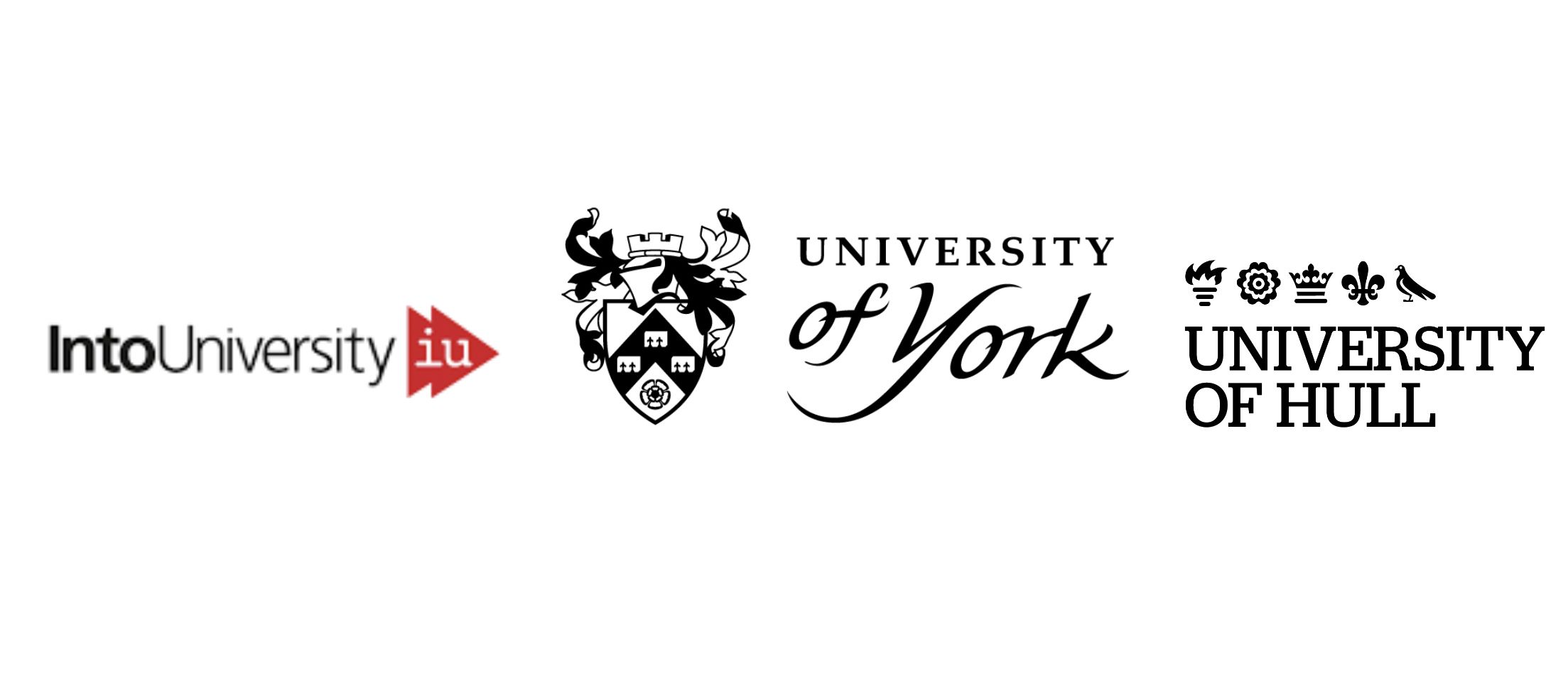IntoUniversity and the University of York
Where young people are inspired to achieve

IntoUniversity learning centres are a practical response to the educational inequalities that blight the lives of many young people growing up in Britain's coastal communities.
We need your support, to together create a fairer society where no child’s opportunities are limited by their postcode.
Young people growing up in our region's least privileged neighbourhoods have always faced an uphill struggle. For many, homes are overcrowded spaces where young people have nowhere to study, where devices are shared between siblings, and where families do not have the disposable income for tutors and after-school activities.
Few get the grades to go to university.

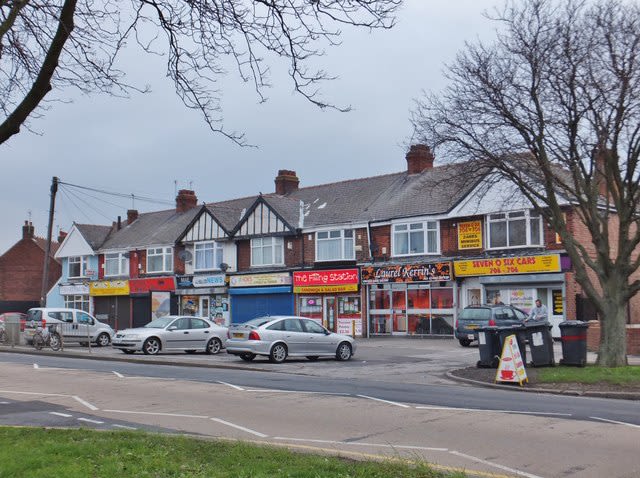
East Hull
In the Marfleet area of Hull, only 10% of young people will benefit from a university education, compared to 44% nationally.

Bridlington
In the urban centre of Bridlington, only 14% of young people will benefit from higher education compared to 44% nationally.
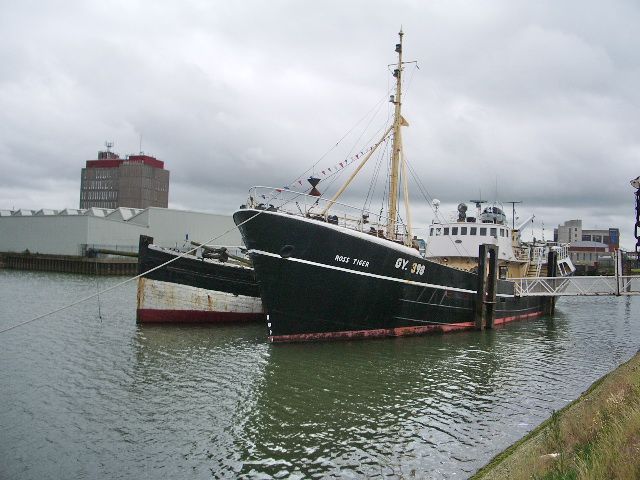
Grimsby
By 16, less advantaged young people in Grimsby are over 20 months behind their more affluent peers in the wider region.
As a result, many families are caught in a vicious cycle, where the barriers faced by one generation are experienced by the next. This creates neighbourhoods where for decades, poverty and educational underachievement have gone hand in hand.
We do not believe that in 2023, a child's postcode should determine their future.
At the University of York, we believe that everyone, whatever their background, should have the opportunity to access the education they need to realise their true potential.
Supporting communities in our region and widening access to education is really important to us, and part of our founding values as a university for public good.
We are working alongside the University of Hull, and national education charity IntoUniversity to open three new IntoUniversity Learning Centres in Bridlington, Grimsby and Hull, to help nurture the talents of young people in our region who may have never considered higher education before, or thought that it was not within their reach.
We know IntoUniversity learning centres are transformational.
Based within the heart of the community and working closely with local schools, businesses and partner universities, they offer long-term support to school aged children, helping them to discover their focus, build their capabilities and ultimately have the opportunity to reach their full potential.


We believe that, with support, every young person can achieve their chosen aspiration, whether that is further or higher education, employment or training.
We are committed to helping them
on that journey. Are you?
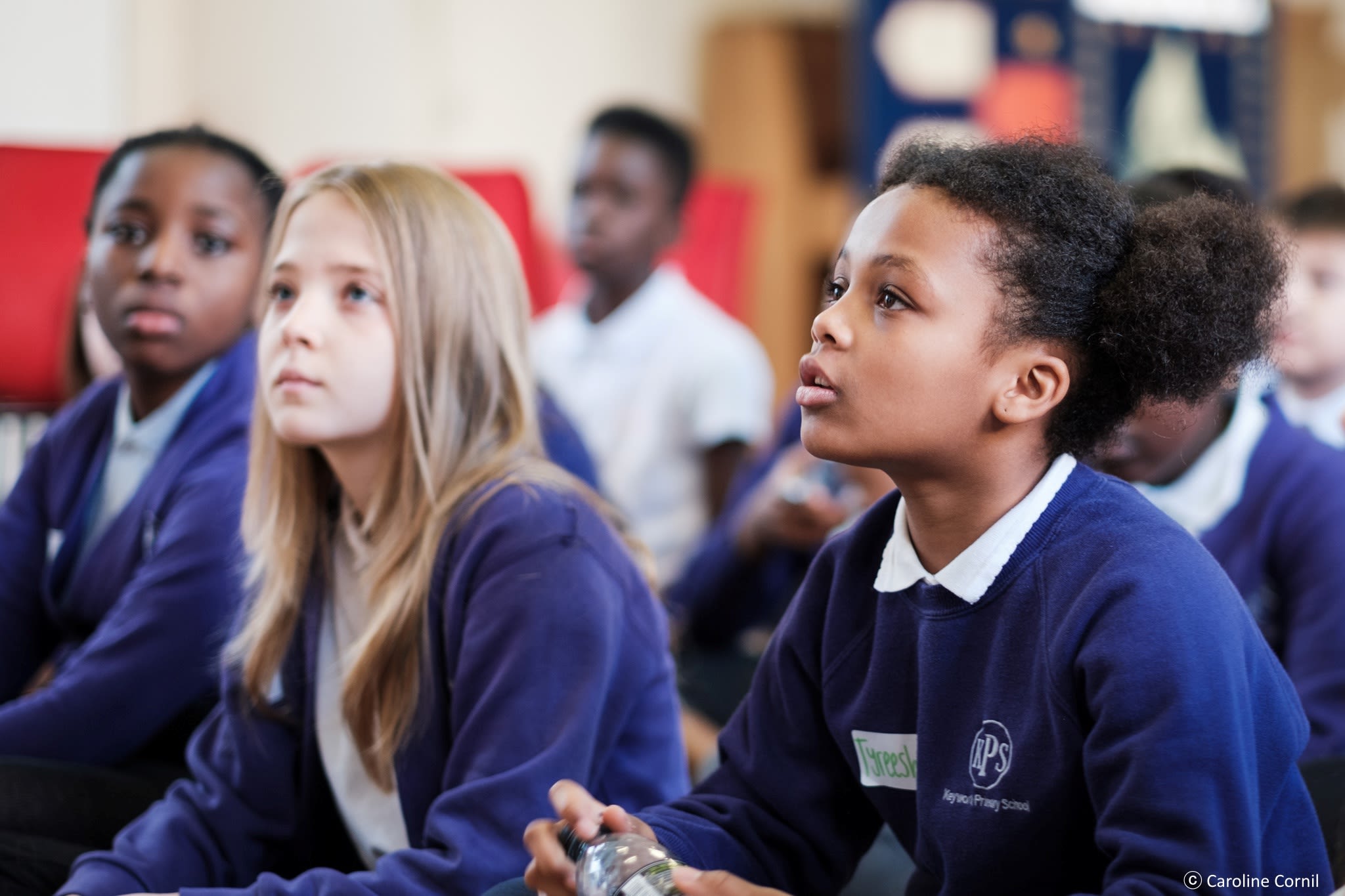
“For young people in Bridlington and Grimsby, Yorkshire and Humberside experiencing persistent disadvantage, the situation is not only unfair; it is a waste of their talents. There is a mismatch between their abundant potential, and the shortage of opportunities within reach. They don’t get a fair chance to succeed, where others do. The odds keep being stacked against each new generation. We want to help change this.”
“Coming to IntoUniversity is an easier way to do your homework because I can ask people there to help me. When I get older I want to go to university, and I would like to study engineering and maybe start a company.”

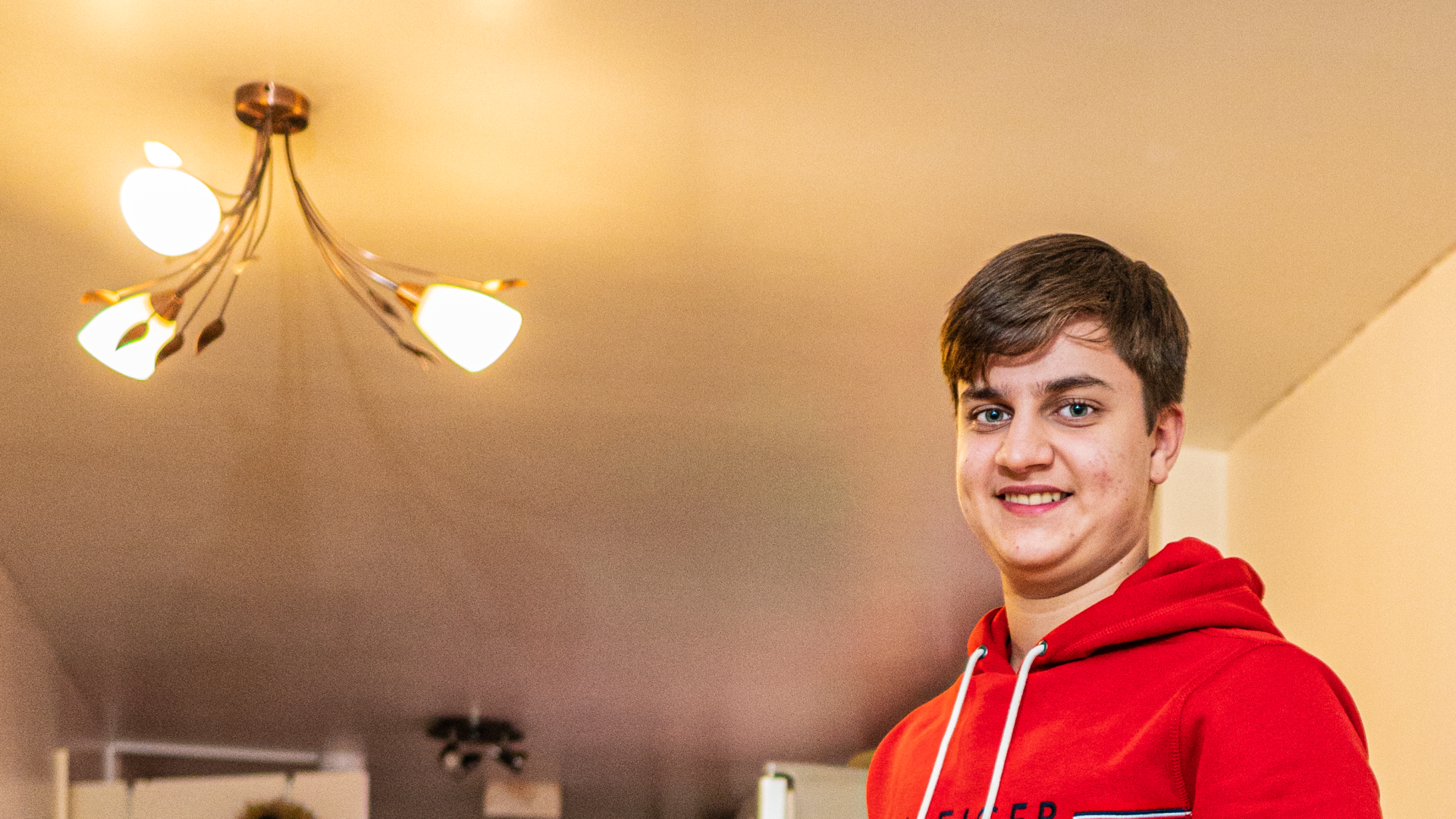
Adam, 15
Adam, 15
The need for IntoUniversity
Despite the picture postcard beaches, coastal communities face new and worrying patterns of deprivation all across the UK, and Bridlington, Grimsby and Hull are no different. Growing up in a disadvantaged postcode restricts a child’s chances of doing well at school, of living a healthy and happy life, and of finding well-paid work as an adult.


Katie, 13
Katie, 13

Sara, 12
Sara, 12
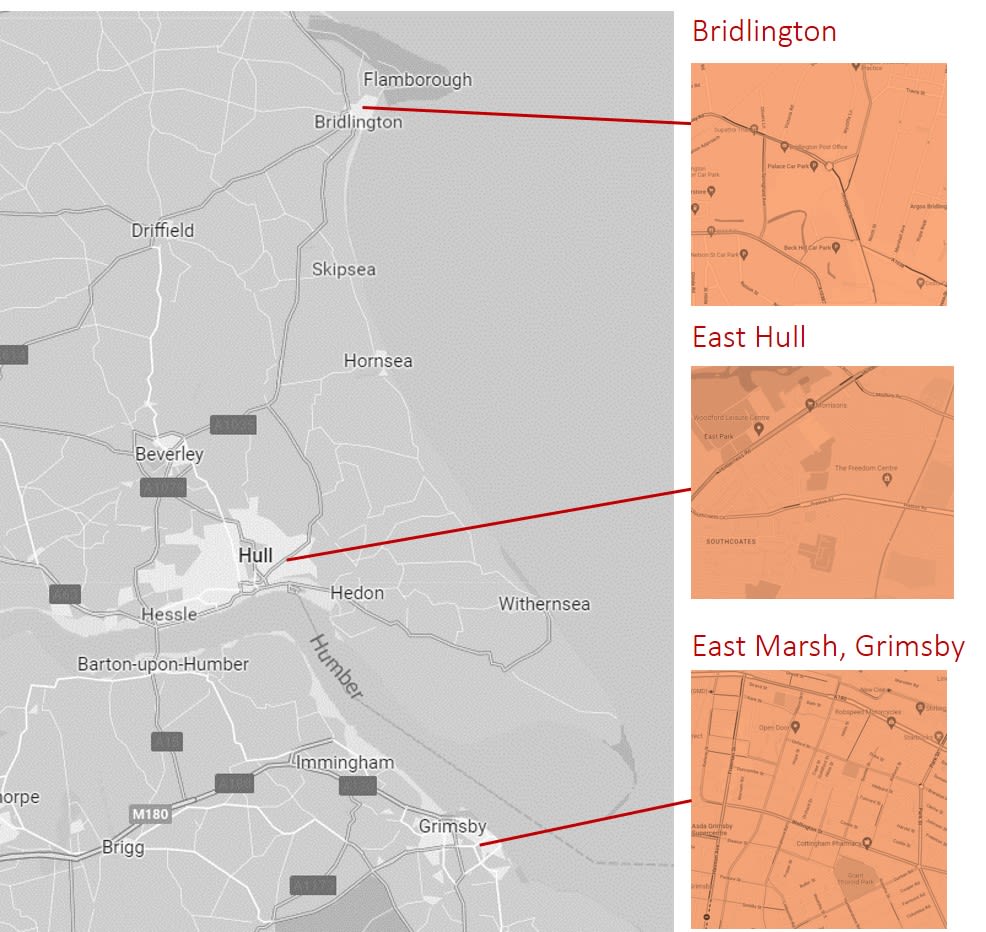
“Deprivation is the hidden story of many of our coastal towns. Poor transport links and unaffordable or substandard housing compounds low wages. Available work is often seasonal. This all contributes to a cycle of poverty amongst communities that is a hard trap for families to break out from. These realities also have an impact on children’s health and wellbeing and their access to education.”
The causes of educational underachievement are complex, but poverty is a major factor. Even before the pandemic and the ongoing cost of living crisis, child poverty levels in Hull, Bridlington and Grimsby had been rising above national averages, up year on year since 2015 and they show no signs of dropping.
In 2020, 65% of children going through poverty lived with at least one working adult. That figure is now 71%.
Food bank usage has increased 50% in Bridlington since 2022.
For young people from the poorest backgrounds, experiencing higher education can bring a host of life-changing benefits, including insights into new career opportunities, and provide a route out of poverty. But whether a young person will ever attend university is too often a matter of geographical chance rather than personal choice.
The educational consequences for young people from less advantaged areas can be measured in how many months they have fallen behind in their learning by age 16. In areas of Bridlington,Grimsby and Hull these young people are more than a year and a half behind other pupils nationally.
The result is ‘locked-in’ and ‘persistent’ poverty; those with a low level of educational attainment are almost five times as likely to be locked into poverty as those with a high level of education and are consequently more likely to struggle to secure jobs in this highly competitive market.
Persistently disadvantaged pupils are young people who spend at least 80% of their time in school eligible for free school meals, these young people make the least progress at school and have the biggest disadvantage gap. Grimsby has a higher rate of persistently disadvantaged young people than the surrounding region.
IntoUniversity centres are based within the communities where young people have the least advantages, providing a service on their doorstep and normalising university aspiration in neighbourhoods where poverty restricts young people’s life chances.
“There are wide gaps in access depending on which part of the country you come from, with young people from some areas still over twice as likely to enter higher education as those from the lowest participation neighbourhoods, and more than five times as likely to enter the universities with the highest entry requirements.”
Young people need your support now more than ever
The current economic outlook is worrying: The Resolution Foundation predicts that over 170,000 more children are expected to be living in poverty in the next five years, with 800,000 more people being plunged into absolute poverty in the next year alone.
The cost of the school day is considerable for low-income families, even before the advent of the cost of living crisis. Schools do all they can to overcome the difficulties faced by students but they cannot do it alone. With more parents struggling with financial hardship the future looks tough, with reduced employment prospects for young people and already struggling coastal communities facing sinking deeper into decline.
We cannot overlook that the impact of COVID restrictions on the poorest families has been immense and disproportionate, with school closures leading to a widening of the attainment gap between less advantaged pupils and their peers. According to the Education Policy Institute, children in Yorkshire and The Humber suffered an average of 5.6 months’ learning loss over the lockdown period alone.
It is not just learning outcomes that have been affected by the pandemic, for many young people their very aspirations feel at risk, as fear for their future education and employment opportunities grows.
There has never been a more important moment to invest in young people to ensure that they stay on track to achieve their ambitions.
“The COVID-19 pandemic has hit youth organisations in the shadow of 10 years of extreme cuts.The impact of the pandemic has had a devastating effect on young people and the safe spaces that support millions of them.”
Empowering our young people

Regardless of the challenges facing many young people in coastal communities, they have ambitions and hopes for the future just the same as their more advantaged peers.The missing element is often the knowledge of how to make these aspirations obtainable and the lack of opportunities to make them reality. Similarly, parents living in poverty have high aspirations for their children, but feel unable to engage with their child’s learning in the home and often feel inadequate in their knowledge and experience to help their children.
We want to reach these children and young people, helping them successfully to make the transition from school into work, post-school education or training, through raising attainment and increasing awareness of post-school options, empowering them to fulfil their ambitions.
“IntoUniversity centres are about helping young people to achieve their potential, realise their aspirations. It’s not about the University of York, in fact it’s not really about progression to university at all. It’s about accessing fulfilling lives, empowering people to believe in their abilities, and helping them to overcome barriers and access opportunities.
That might be university, it might be work-based training, it might be an apprenticeship or enterprise - the point is, they have a choice and we're here to work with them, to open opportunities and help them to believe they can.”
“I’m interested in being a doctor as I want to help sick people or maybe a lawyer; also an interior designer as I like designing and art.
Sometimes I don’t understand my homework, so I like that I get help at IntoUniversity. They’re kind. They all help you in any way, they won’t just leave you with your hand up, they’ll come to you straight away or after they finish with another person.”
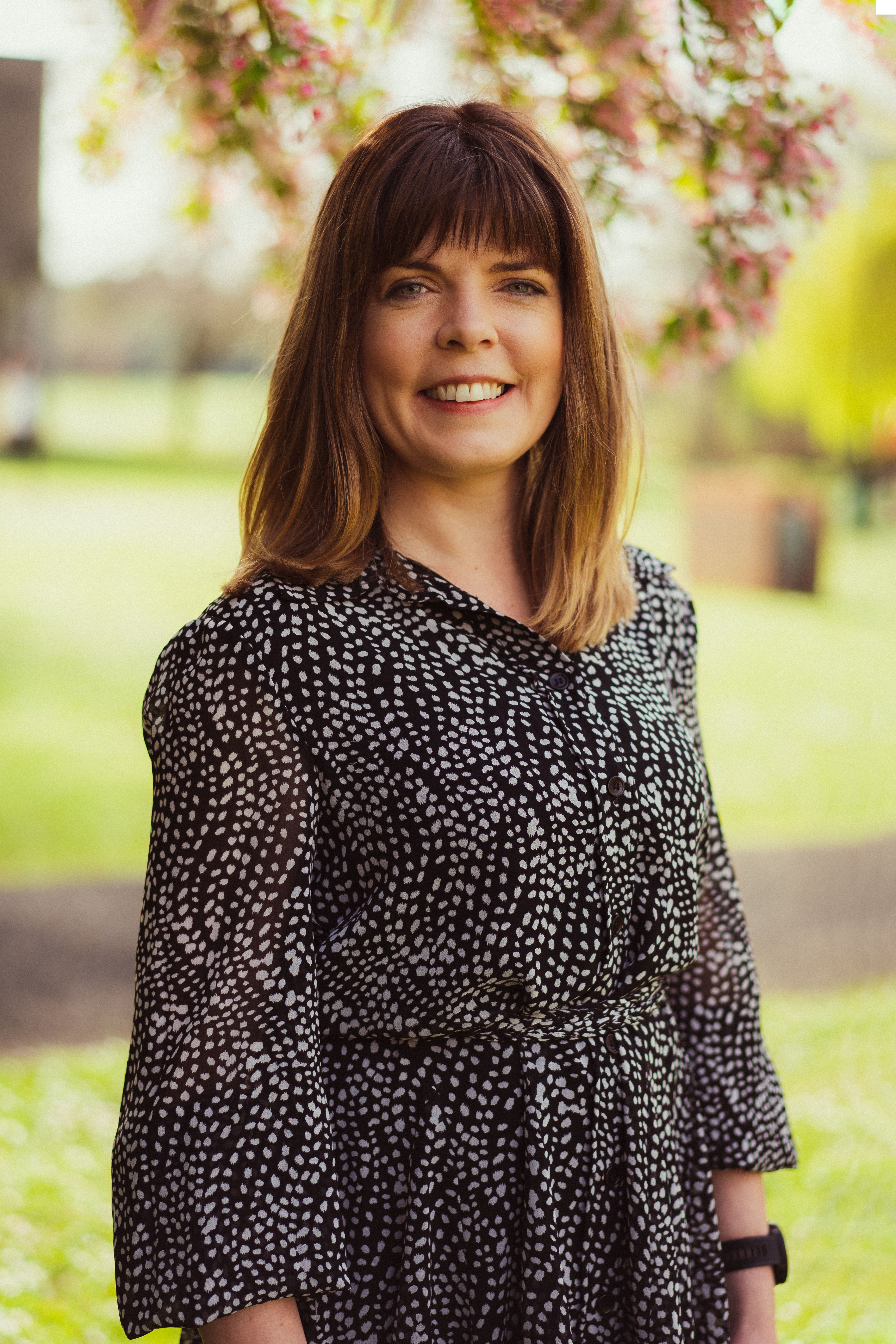
Rebecca Clark, Head of Access and Outreach, University of York
Rebecca Clark, Head of Access and Outreach, University of York

Betty, 10
Betty, 10
Grimsby
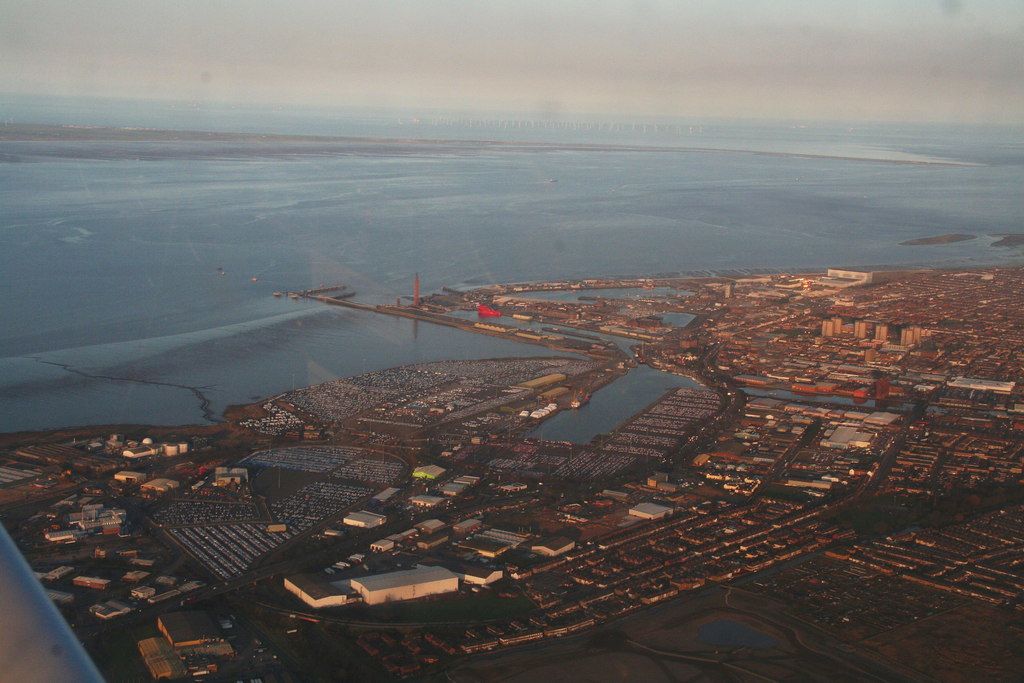

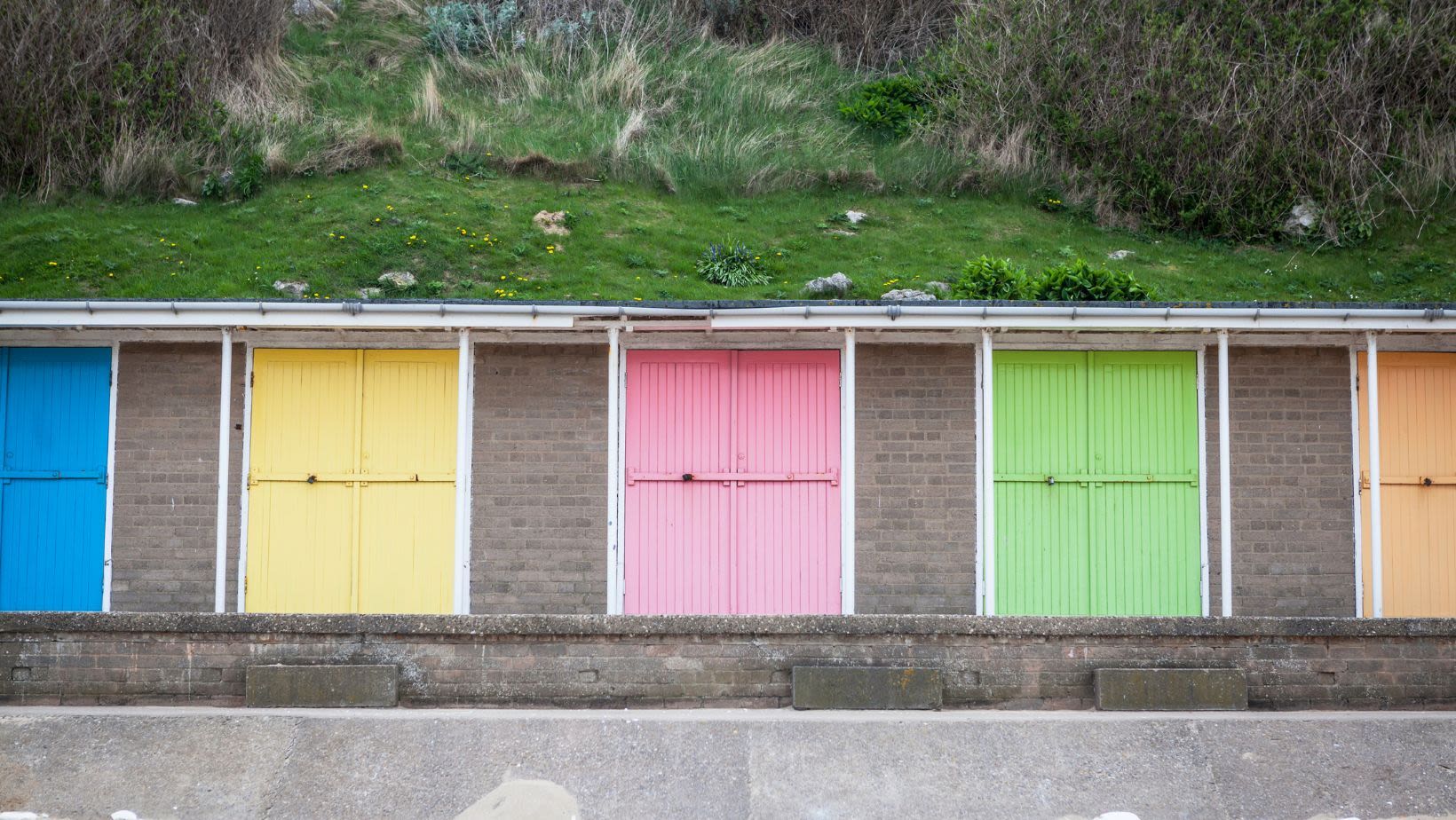
Grimsby was once home to the world’s largest fishing fleet and a bustling maritime industry. Like many British industrial towns in the 1980s it experienced a rapid decline. Jobs disappeared and the community was offered little support in the aftermath, residents have had to try to replicate their former careers with precarious, low skilled jobs.
Today Grimsby’s industry is focused around food processing, chemical and pharmaceutical industries and it has a growing renewable energy industry. Industry is slowly taking back the opportunities Grimsby has to offer and there is a lot of potential for economic growth and job opportunities.
The offshore energy industry could provide essential jobs to an area of the country with high unemployment rates and a population already equipped with the key maritime skills. Developments are expected to bring ‘thousands of well-paid, sustainable jobs’ to the area , creating a growing demand for highly skilled workers.
But many residents do not have the skills needed to take advantage of the high-skilled jobs expected to come to the area in the next 10-20 years.
A report by The Institute of Education at UCL addressing outcomes for youth in coastal communities found that many in North East Lincolnshire feel there are not enough things for them to do, or places for them to go. Those surveyed believed that they had to move away from the area in order to access higher education and/ or be successful.
A postcode should not be a barrier to a child's aspiration.University is not right for every young person, but IntoUniversity believes that the opportunity for post-school education should be open to everyone.
“In the 1940s, 1950s and 1960s Grimsby was a flourishing fishing port, and many of the people from the East Marsh Area had connections with the fishing industry. However, the area has not changed a great deal in many ways. Back-to-back terraced housing, with streets such as, Guildford Street, Kent Street, Garibaldi Street, Rutland Street and Hope Street, all of which have been partially demolished or have been in decline for many years. Statistically, East Marsh Ward is one of the most deprived wards in the whole of the United Kingdom. Life expectancy is lower than in other areas of the Borough, there are high rates of unemployment, high rates of drug misuse, high levels of crime and anti-social behaviour, low levels of educational attainment and low levels of young people going onto university.”
The new Grimsby centre will be located in the East Marsh, an area of significant need and among the 1% most deprived wards in England.
39% of children in Grimsby were living in poverty in 2020/21, this is 6,953 young people.
North East Lincolnshire is a social mobility coldspot, indicating that young people from poorer backgrounds have less of a chance of doing well than other areas of the country. The social mobility index compares the chances children from poorer backgrounds have of doing well at school, finding a job and having a decent standard of living. North East Lincolnshire performs particularly badly for youth indicators and is the 3rd worst ranking local authority for the percentage of young people eligible for free school meals progressing to higher education.
Attainment measures in Grimsby’s secondary schools are significantly lower than regional and national averages and large areas of the town are in the lowest quintile for higher education participation.
The overall progression rate to higher education in North East Lincolnshire is 33.9%, this drops to 20% for young people entitled to free school meals compared to 27% nationally.
In 2020/21 just 8 young people from North East Lincolnshire receiving free school meals went on to high tariff institutions.
Bridlington

Ever since the railway reached Bridlington in the middle of the 19th century, the town has been one of the region’s most loved holiday resorts, but cheap flights and reliable weather abroad have dented the town’s appeal, and Bridlington has faced the same challenges that resorts around the UK have experienced. Its once thriving tourism and engineering industries have given way to the challenges associated with deprivation, including unemployment, crime and drug use.
Bridlington is a great place to live, work and visit, but decades of increasing economic hardship now mean the town is one of the most deprived in England. (When ranked according to criteria in the Index of Multiple Deprivation 2019, criteria includes things such as income, access to health care and housing).
East Ridings, Yorkshire is overall one of the least deprived local authorities in England.(IoD, 2019) It does however have pockets of huge deprivation, including Bridlington. These pockets of deprivation are often overlooked due to East Ridings’ relative affluence. Bridlington South is the most deprived ward in East Ridings and one area of the seafront is the 44th most deprived neighbourhood in the country.
Young people in Bridlington schools are very much more likely to be growing up in homes facing economic hardship. In some schools there are twice as many young people receiving free school meals than the national average.
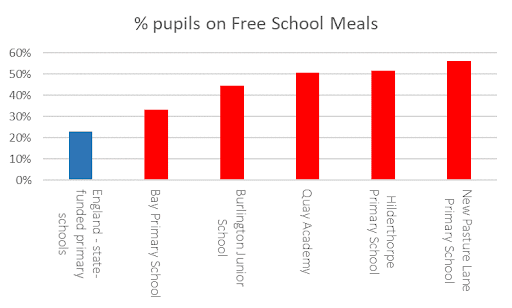
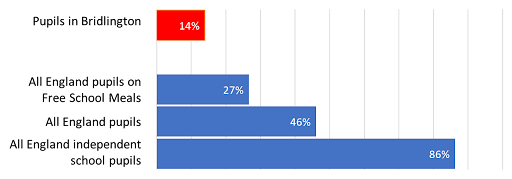
Too many children in the town are growing up in circumstances that limit their life chances. Children from low-income homes are more likely to leave school with results that do not reflect their true potential.
University is not right for every young person, but IntoUniversity believes that the opportunity for post-school education should be open to everyone. As things stand, parts of Bridlington have some of the lowest levels of university participation in the UK. The table above shows the percentage of school leavers progressing to university in Bridlington compared with other young people in England.
The new IntoUniversity centre will provide high quality support to young people who often have not had the opportunities they deserve to make the most of their talents.
With your support the new centre will open in Spring 2024 and will provide long-term academic and personal support to young people in Bridlington’s primary and secondary schools, providing vital support for 1000 young people each year.
“A new IntoUniversity centre in Bridlington would be a significant sign that in this often overlooked and forgotten community there is hope for the future.”
Hull

Hull is a great city with lots of talented and capable young people, but some of them are not getting the opportunities they deserve due to circumstances outside of their control. The new IntoUniversity Centre will help these young people tap into their potential, build their confidence and skills and realise their future dreams.
Hull’s twin loss of its fishing and shipping industries consigned it to a future of poverty, isolation and unfair ridicule. The loss of Marfleet’s industries and the heavy bombardment of Southcoates during the Blitz mean these areas of east Hull have long been familiar with economic hardship. In national analysis, they rank among the most deprived ten percent of areas (IoD 2019).
Young people in the city are contending with some of the toughest circumstances in the UK. Generations of families have experienced hardship after the decline of Hull’s maritime industries, with government figures ranking Hull as the fourth ‘most deprived’ city in England. 45 percent of neighbourhoods in Hull fall into the most deprived 10 per cent in the country.
Hull’s proud heritage has been rightly celebrated, but despite its City of Culture legacy, the city continues to battle high unemployment rates, set to increase as the cost of living crisis continues.
The Hull centre is based at The Freedom Centre, Preston Road, and is already working with young people and their families predominantly from the Marfleet and Southcoates wards in East Hull. In these communities, only one in ten young people will benefit from a university education, compared to 43% nationally. As a result, many remain locked out of secure, well-paid employment, and the chance to escape financial struggle.
This is what IntoUniversity Hull will work hard to address.
“Hull and our people have dealt with some huge challenges in the past, and we have always overcome them, but, on this occasion, as has too frequently been the case in the past, we seem, once again, to be the forgotten city.”
The partnership
The combined efforts of like-minded institutions, the Universities of York and Hull, working with IntoUniversity, will enable these shared ambitions to be pushed further, helping young people from less advantaged backgrounds to achieve their potential. With a focus on working with children and young people from seven upwards, the programme aims to close the Higher Education gap between the most and least advantaged communities in Humberside and the East Ridings coast.
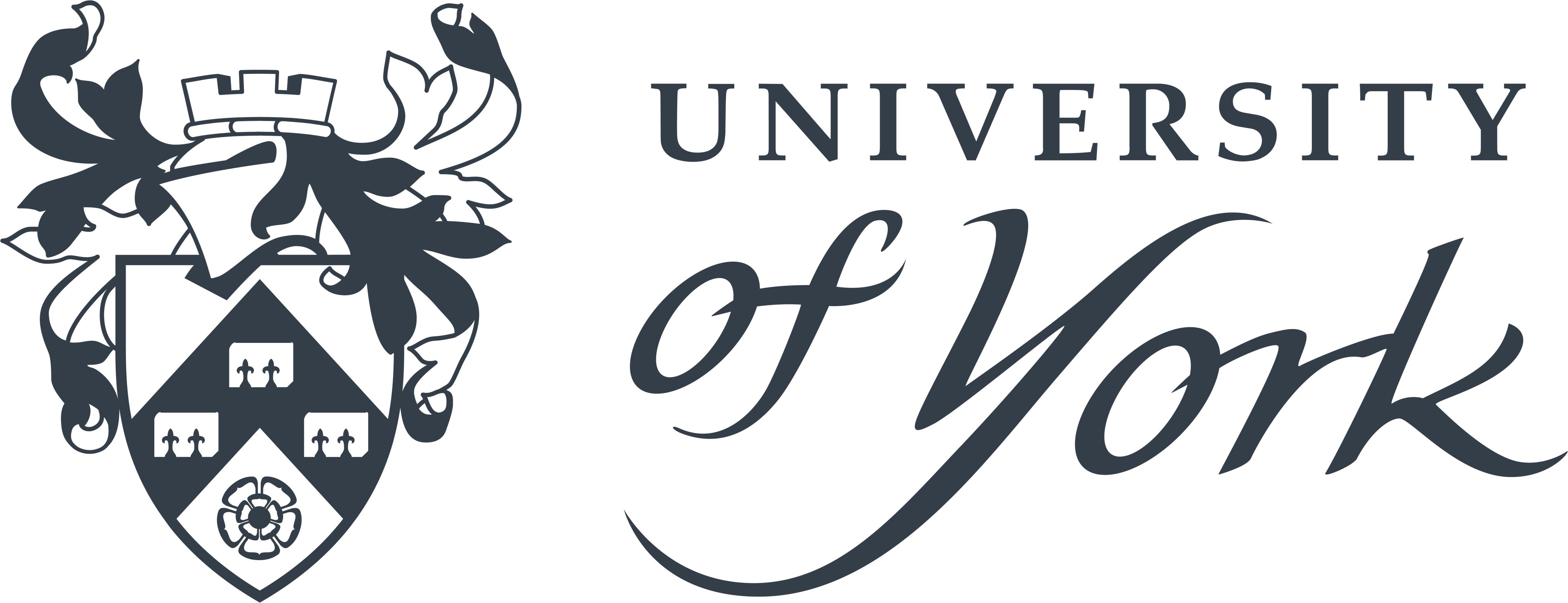
The University is deeply committed to encouraging talented young people, regardless of background, to meet their full potential. With public good at its core, and a commitment to raising aspiration, York has a long track record in supporting students to realise their ambitions and sees opening up the opportunity to go on to higher education as a key priority.
York's access and outreach programme is at the heart of this priority. Working closely with teachers, advisers and other partners, York's approach is to enthuse and inspire talented young people from all backgrounds about higher education and empower them to achieve their aspirations whatever they might be.
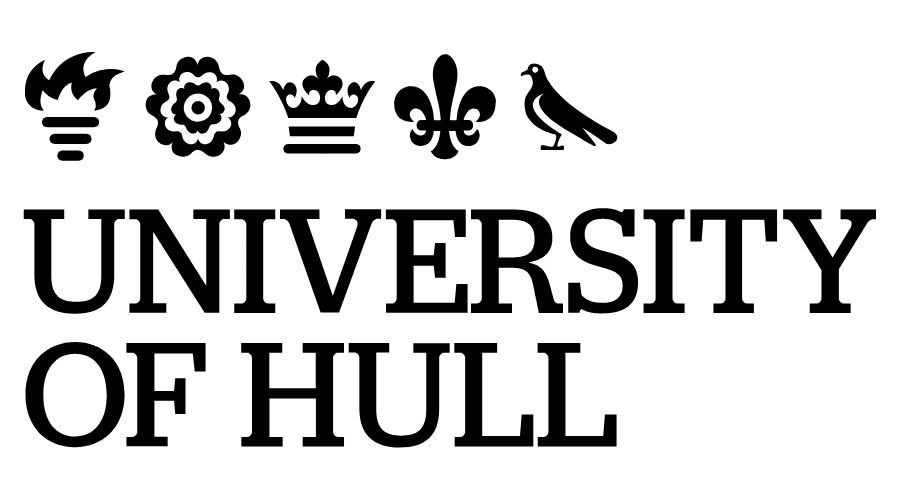
IntoUniversity programme

IntoUniversity’s tried and tested programme has been created to support its unique approach of early, long-term and community-based intervention, empowering each young person to achieve their academic and career ambitions.
Academic Support
After-school academic support sessions help young people to become curious, independent and successful learners. We provide a quiet and safe place to study, as well as skilled tutors, which many students do not have access to at home.
FOCUS programmes
Run in partnership with local partner schools, the FOCUS programme informs students about future pathways through fun, aspiration-building workshops and trips to the Universities of York, and Hull, cultural institutions and corporate offices. This will familiarise young people with the opportunities of university and professional careers, and show them that they are attainable.
Mentoring
IntoUniversity’s students will be paired with university students from the Universities of York and Hull or corporate volunteers. They will act as aspirational role models, provide one-to-one advice about future pathways and help to build students’ essential soft skills that they need to be successful, such as confidence, communication and teamwork.
Careers support
Working with our corporate partners, we provide work experience, internships, and networking through our Student Enrichment programme, giving students further insight into the range of careers available to them and encourage them to think seriously about their futures.
“Attending Academic Support has definitely had an impact on my boys’ academic achievements and social skills. The staff spend a lot of time investing in the relationship with parents which means they better understand the children’s academic needs. The smaller classes also mean the boys receive lots of one-to-one time. My boys are quite shy when it comes to speaking out in class, but because you have built such a nice environment, the boys don’t feel intimidated or embarrassed to offer their opinion or answers.”
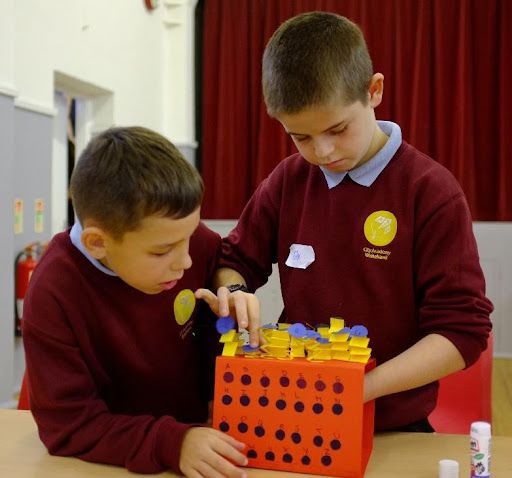
Young students on IntoUniversity’s Primary FOCUS programme. The whole class spends a full week out of school focussing on their ambitions and working in teams on a university-style project.
Young students on IntoUniversity’s Primary FOCUS programme. The whole class spends a full week out of school focussing on their ambitions and working in teams on a university-style project.
How IntoUniversity is different

Early and sustained intervention
Long-term work starting in Primary school is the best solution for communities with entrenched intergenerational disadvantage and low educational achievement.
A place-based service at the heart of local communities
IntoUniversity is the only organisation offering dedicated education centres for disadvantaged young people in the communities where they live, providing them with support during their school years and beyond.
A scalable model to reach social mobility cold spots
IntoUniversity has shown that it can scale rapidly and effectively to address needs in educational and social mobility cold spots.
Rigorous impact measurement
IntoUniversity has effective monitoring and evaluation systems and powerful evidence of impact.
“IntoUniversity has allowed students to open their eyes to what they can achieve… Some of our students thought that they had already blown their chances, but at IntoUniversity they have learnt that there is still time to turn things around.”
IntoUniversity impact
A key measure of the impact of IntoUniversity centres is the progression rate of the young people to university and other post-school destinations. By tracking students as they leave the school system and comparing their performance against national statistics and IntoUniversity’s tailored benchmark, we know that these young people perform significantly better than their peers.
“The Primary FOCUS programme has …a transformative effect on the children's aspirations. The range of purposeful and engaging activities gives the children the opportunity to think about their futures,including the vast range of career options open to them. The visit to the University of Nottingham gives them a genuine insight into Higher Education; this is especially important for children with no family history of attending university. It is an inspirational week.”
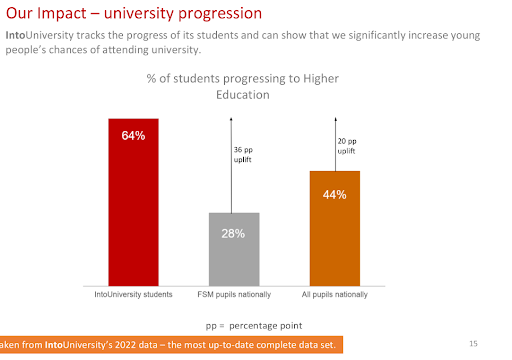
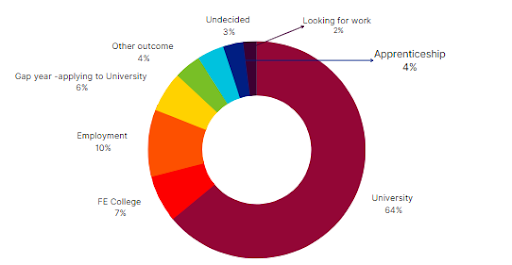
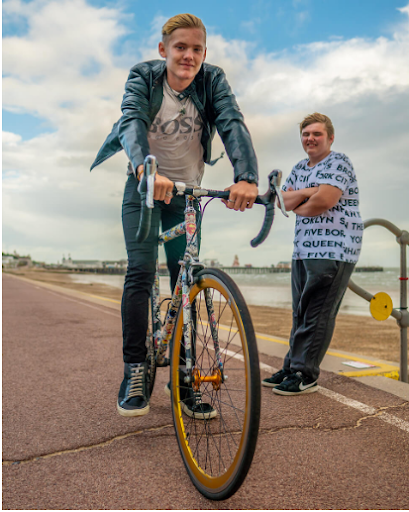
Mat, 16
Mat, 16
“Until coming to IntoUniversity I wasn’t doing great at all at school. Not paying attention, so I wasn’t really doing much. The teachers weren’t my biggest fan, so they never really told me that I had potential. But going to IntoUniversity turned it around for me and I noticed there was an opportunity for me, so I knuckled down.
IntoUniversity told me about university, and the grade boundaries and how easy it can be, and that they will be there for extra support should I need it, and the extra support definitely helped.
My teachers love me now. They all want to help me. I have the motivation that I can do it, so I just sat down in class and listened instead of mucking about like I used to.”
Meet Yafet
“Take every opportunity because it will have a domino effect.”
Yafet is a 20 year old student, studying AI and computer science at the University of Edinburgh. Nine years ago, he walked into a IntoUniversity centre for the first time.
Yafet’s dad heard about IntoUniversity Leeds East when the centre first opened in 2014, and encouraged him to start attending secondary academic support.
“When I first arrived, there were a few people that I knew there, which made it a bit more familiar. There were laptops available and plenty of books. Members of staff always had really energetic bright smiles. They were really relaxed and we were comfortable around them.
Coming to the centre opens your eyes a bit. It’s called IntoUniversity, but they show you there is so much more out there. IntoUniversity knows all of the (potential) options like degree apprenticeships, apprenticeships and then they give you insights into what university is like.”
After Yafet got into the University of Edinburgh, he discovered that IntoUniversity had just opened a centre in the city. Without hesitation he signed up to mentor, remembering how helpful it was to have a mentor himself. Yafet’s mentee is fifteen year old Lao, who moved to Edinburgh from Nigeria three years ago. The pair have been meeting since October 2021.
Reflecting on his IntoUniversity journey, Yafet thinks his younger self would be happy with where he is now.
“I’d make sure to use all the opportunities. Take them all because down the road you never know if they will have a knock on effect.Whatever you do today or tomorrow will affect your future, whether it's five years, ten years or maybe a month later, just make sure you take every opportunity because it will have a domino effect.”
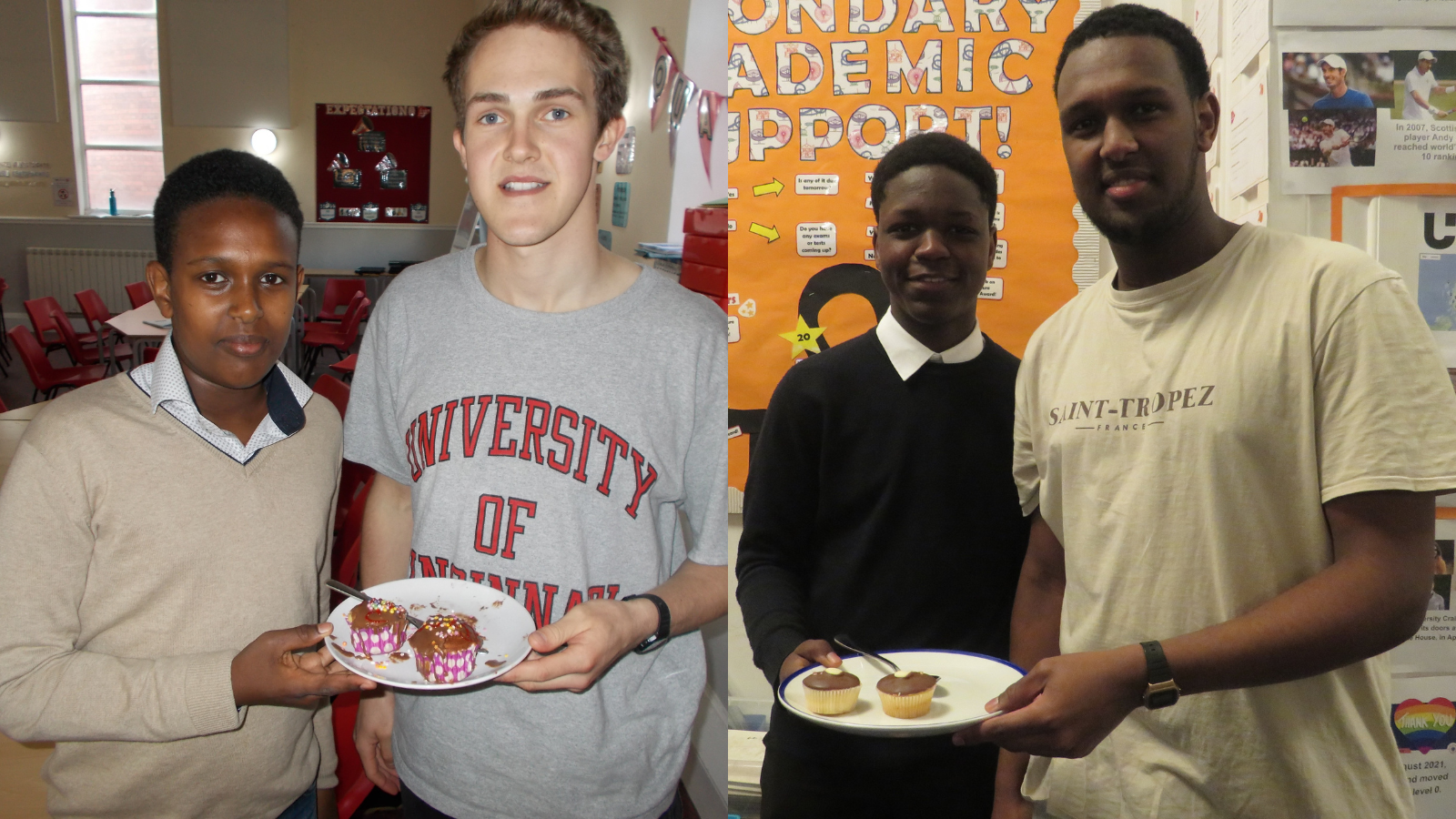
Yafet with his mentor and then Yafet with his mentee (Lao, 15)
Yafet with his mentor and then Yafet with his mentee (Lao, 15)
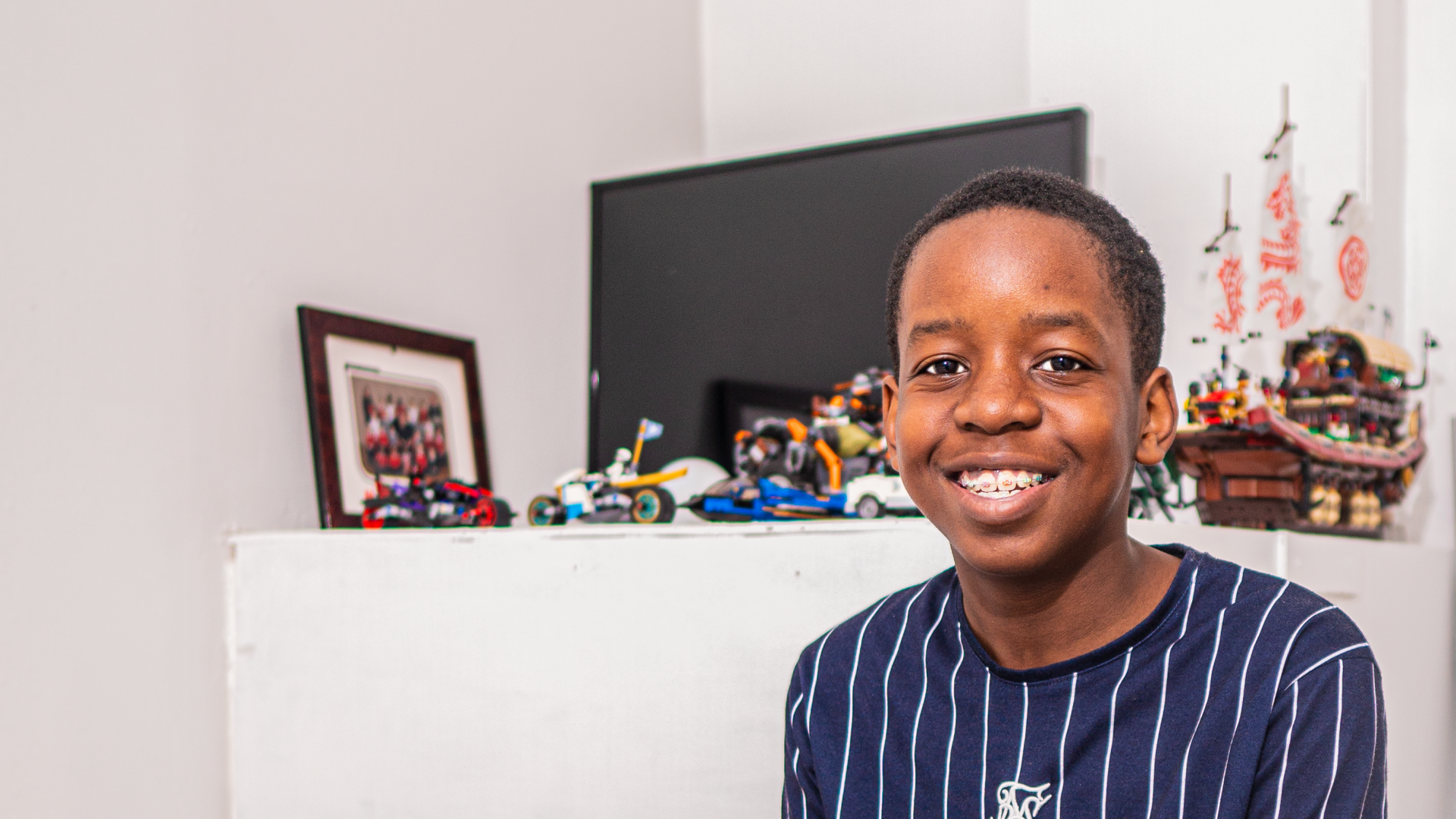
Takudzwa, 13
Takudzwa, 13
“When I’m older, I’d like to be an architect. Deciding that happened while at IntoUniversity when I had a mentor. It’s very creative, to see the way people design buildings. If IntoUniversity didn’t exist, it would be harder to do homework. I usually do most of my homework there.”
For more information please contact:
Laura Dennison, Philanthropy Manager
T: ++44 (0)7385 976077
For corporate enquiries please contact:
Edward Joyner
Registered Charity No. 1118525 (England and Wales) SC049776 (Scotland) Company Registration No. 6019150
Photography and case studies provided by IntoUniversity.
